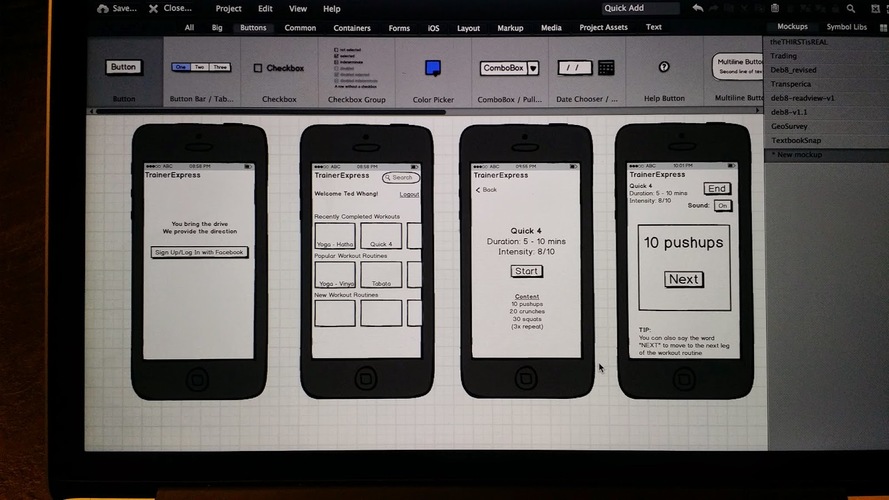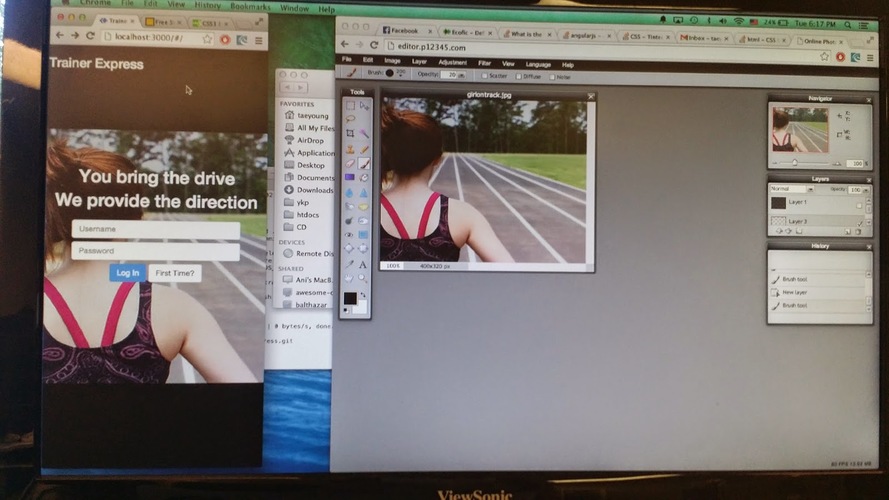blog article
Why You Should Blog Every Day at a Coding Bootcamp
![]()
Written By Ted Whang
![]()
Written By Ted Whang
Course Report strives to create the most trust-worthy content about coding bootcamps. Read more about Course Report’s Editorial Policy and How We Make Money.
Course Report strives to create the most trust-worthy content about coding bootcamps. Read more about Course Report’s Editorial Policy and How We Make Money.

I watch the clock as it hits 8pm - telling me it’s officially been 3 hours since I started debugging my assignment.
The frustration I’m feeling towards my assignment immediately redirects to frustration towards myself. Three long hours without any clear signs of progress is enough to make anyone feel incompetent.
I take a look around only to find one other classmate still here (a former Facebook Project Manager and tonight, my carpool ride).
“Time to go home Ted! It’s getting late!” His cheery attitude only makes me more irritated as I reluctantly get in the car. During the 15 minute ride from Bellevue to Seattle, I don’t say a single word - I’m only thinking.
My thoughts consist of possible reasons why my code doesn’t work, alternating with thoughts about how stupid I must be. My friend reminds me as he drops me off, “Go get some rest. You’ll figure it out tomorrow. I know you will.”
As I close the door behind me, a surge of unworthiness floods my veins as I throw myself onto the bed, mope for a few minutes, and then eventually pull myself back up to write my daily blog post.
In the midst of writing about how stressful and irritating coding is, I glance at the sidebar to find a link to my very first blog post. Reading through my first blog post, I was reminded why I started this journey in the first place:
"From what I know the course will be intense and I will have to put everything on the back burner in order to pull this off. I’ve informed my family, girlfriend, and friends that this is a priority in my life that will consume over 70 hours a week.
Coding is extremely fun but I’m not going to bootcamp to become a hobbyist. I’m going to bootcamp because I enjoy it so much that I want this to be the thing that I do for the rest of my life and get paid for it.”
At that moment I realized that all the stress and difficulty is exactly what I signed up for. I didn’t sign up for a bootcamp because I thought it was easy, I signed up for it because it’s hard. The road to becoming a developer is not a glamorous one. It is filled with obstacles and frustration to the point you want to throw your laptop across the room (you don’t since you just dropped thousands of dollars on it at the Apple Store).
Learning to code is not easy, nor is it meant to be, but blogging every single day will help you keep your sanity. How exactly?
While you’re in the trenches of the bootcamp, it’s easy to lose sight of why you’re there in the first place. It’s easy to get caught up in the emotions of a problem taking over 3 hours to figure out. If you’ve blogged from Day One about your goals and intentions, then you will be reminded of your end-goal, changing the way you approach daily obstacles.
Sure, GitHub is a great place to see the evolution of your code, but blogging and reflecting on how you approached problems and solutions can be a valuable resource to Future Developer You. At any time, you can look back at how far you’ve come along since you first started, and how you might approach things differently with your evolving skillset. It would be quite a shame if you threw all that away. What a waste!
For example, here is a project that I drew up from in my head and implemented into an actual application. Before the bootcamp, it didn’t matter what ideas I had because I could never actually create them. Now the only limitation I have is my imagination and time.

Wireframes for my project Trainer Express.

Designing the User Interface for Trainer Express.
There will be days when you go home and think, “Wow I really didn’t learn anything today.” It’s inevitable.
But when you sit down and begin to write what you did that day, your memory starts telling you a different story. “I didn’t learn anything” turns into “Actually I did learn x, y, and z”. After blogging for 60 days, I have detailed documentation of how I learned concepts like debugging, test-driven development, wireframes; I know when we learned technologies like CSS, Ruby, PHP, MySQL, etc. And I’m reminded of visits with recruiters, phone interviews, and how I felt after my Black Belt Exams.
Humans are creatures of routine. Routines keep you from going insane. My bootcamp morning ritual consisted of an english muffin, eggs, and a warm cup of bullet-proof coffee while listening to the morning lecture.
My night ritual was my daily blog post filled with reflection of the day. I made sure that there was absolutely no coding done outside of those times.
Coding over 8 hours a day is extremely draining but I always left a little brain power for my blog just like I always leave a little room for dessert.
As Benjamin Franklin said, "Either write something worth reading or do something worth writing." There will be days when you feel lazy and unmotivated. It’s only human nature.
Some days I showed up to bootcamp thinking, “Wow, I’m so exhausted. I really don’t want to do anything today.” But those thoughts quickly vanish when I ask myself, “What am I going to write about in today’s blog post?”
Every day I strived to do something worth writing about however little progress that might be.
When I started writing my blog, I posted it on my Facebook thinking nobody was really going to subscribe. Weeks later I have friends and acquaintances telling me, “ Ted I’ve been reading your blog. It’s so interesting what you’re doing.”
“Uhh really…?”
Yes. Really. It may seem like learning to code and changing your career is nothing special when you’re in the midst of it all. But to others a coding bootcamp is quite an amazing experience.
To go from non-technical to a software developer in a matter of months is no easy feat. In fact, it’s quite impressive!
It’s a great feeling to know that not only are people watching you but they are cheering you on as you go through this journey. Trust me, it really helps.
You don’t have to write a blog every day in order to be successful in a coding bootcamp. But this is a great opportunity to reflect on a major life decision and a huge commitment. I definitely have had more success than I would’ve otherwise.
Most do not write at all because of the sheer intensity of the bootcamp style curriculum. They simply feel as they do not have enough mental energy to write every single day. But you can if you do as I did by “leaving room for dessert”.
Even if your blog is private, even if you only write 10 minutes a day - your blog will remind you where you came from and how much progress you’ve made each and every day. It's always good to remember where you come from and celebrate it.
"To remember where you come from is part of where you're going."
To learn more about Coding Dojo, check out their school page on Course Report or the Coding Dojo Website!

Ted Whang, Ruby/React Software Engineer & Instructor
Ted Whang is an experienced Ruby + React Engineer and an avid writer in the tech space, based in Las Vegas. Before Ted entered a coding bootcamp, his burning question about bootcamps was: “What exactly does on behind those doors on a day-to-day basis?” The lack of an answer to that question eventually led him to meticulously write everyday about his bootcamp experience at Coding Dojo. Currently, Ted is a Senior Software Engineer at Goody and also teaches coding at Nucamp.
Sign up for our newsletter and receive our free guide to paying for a bootcamp.
Just tell us who you are and what you’re searching for, we’ll handle the rest.
Match Me